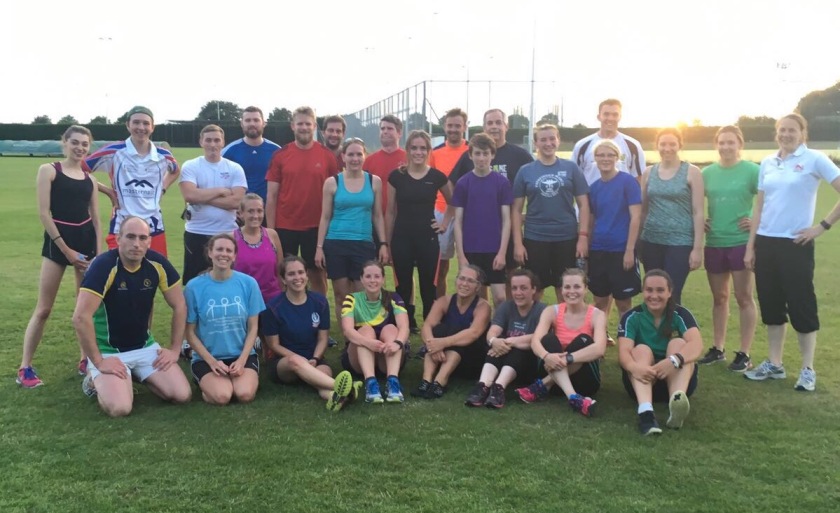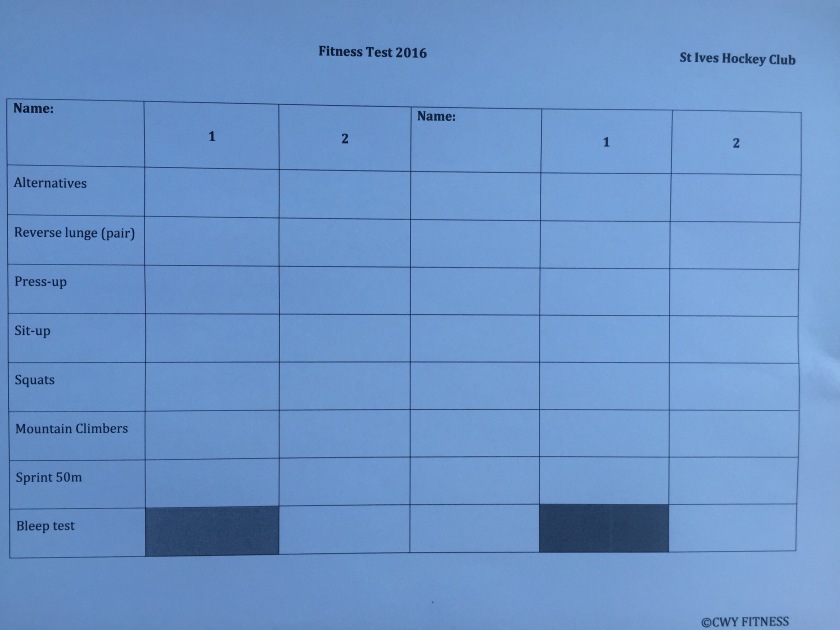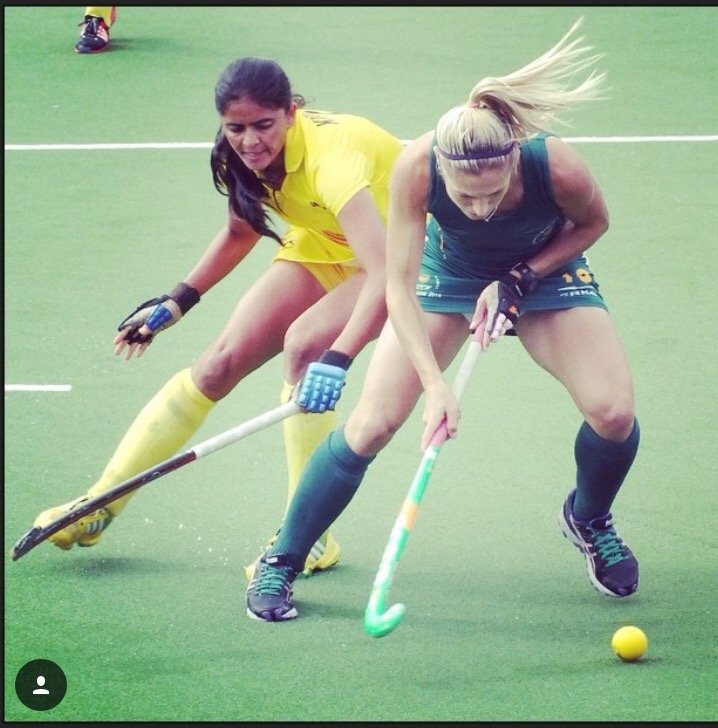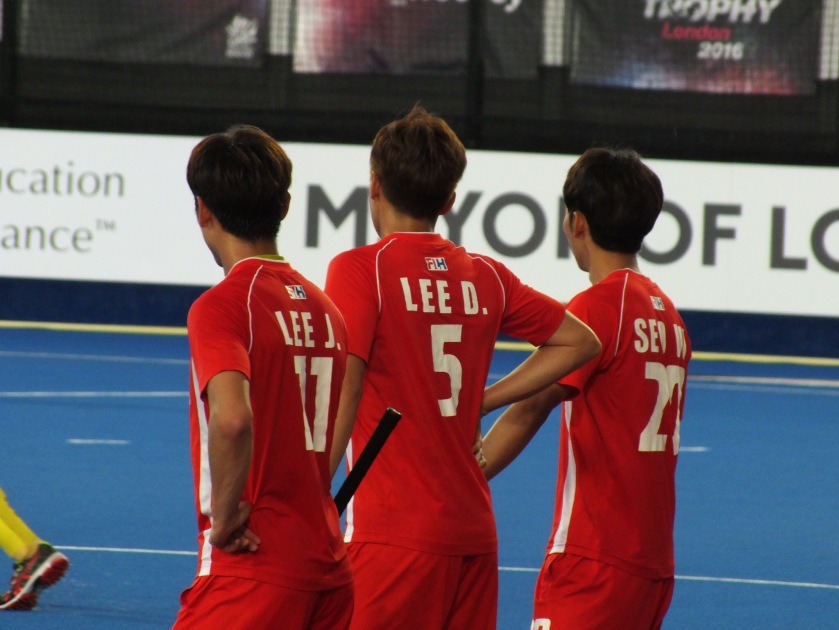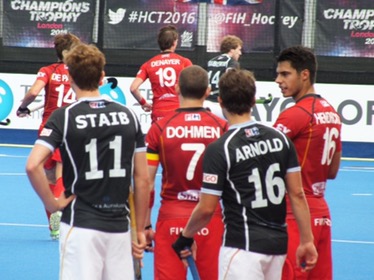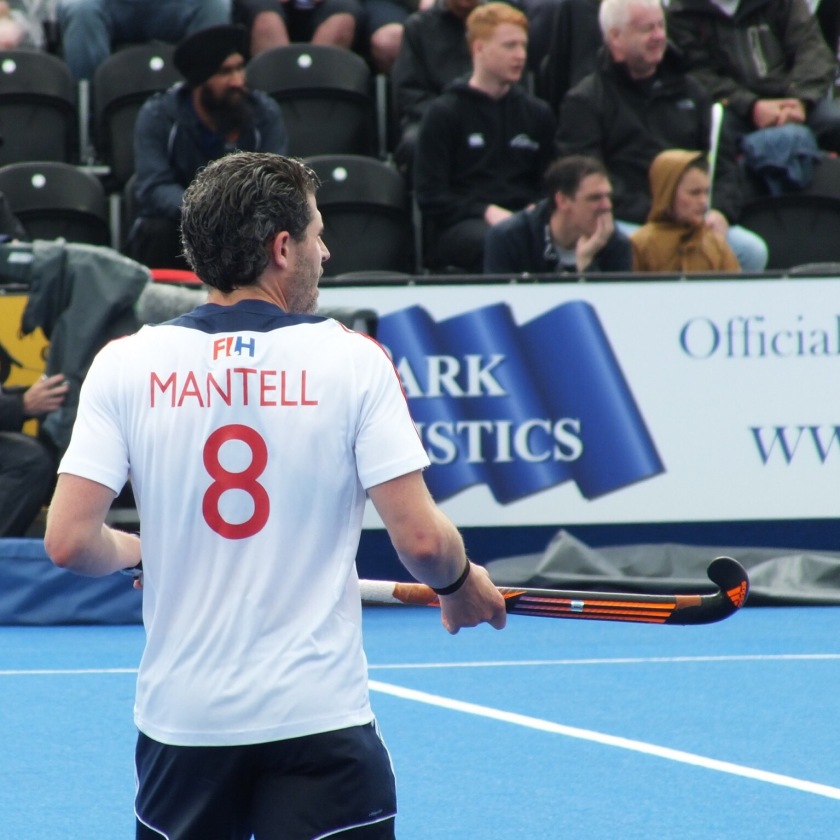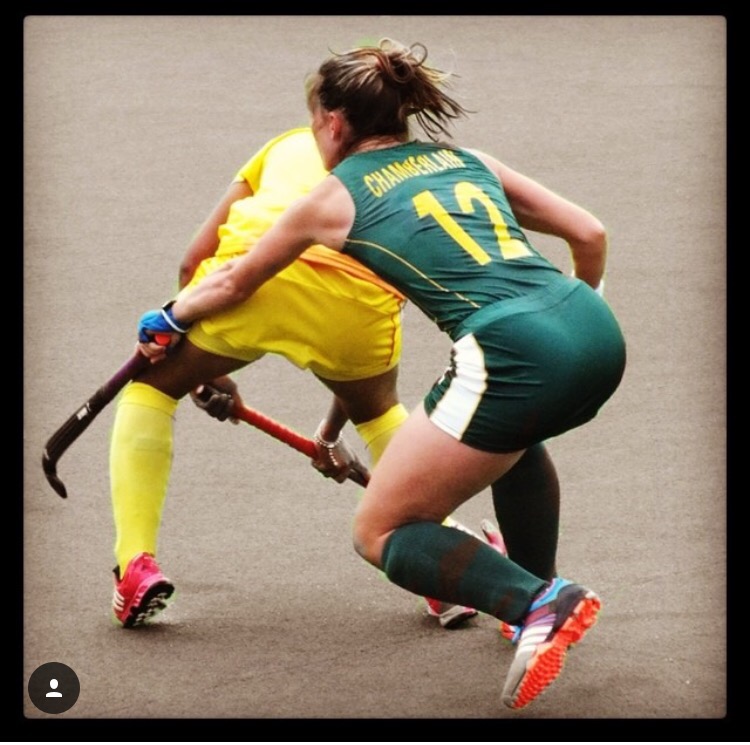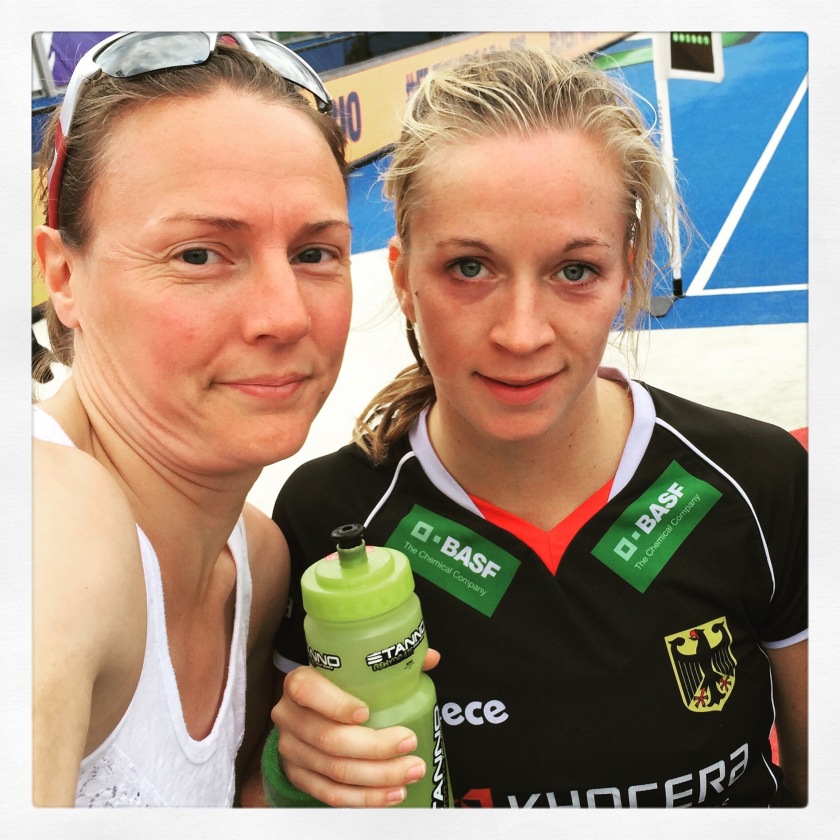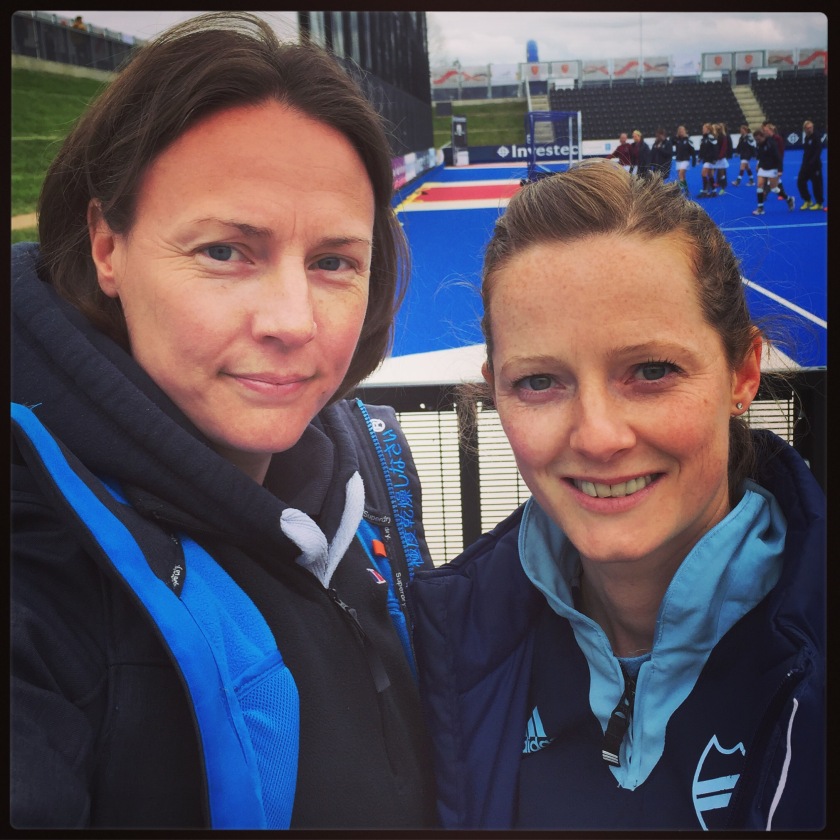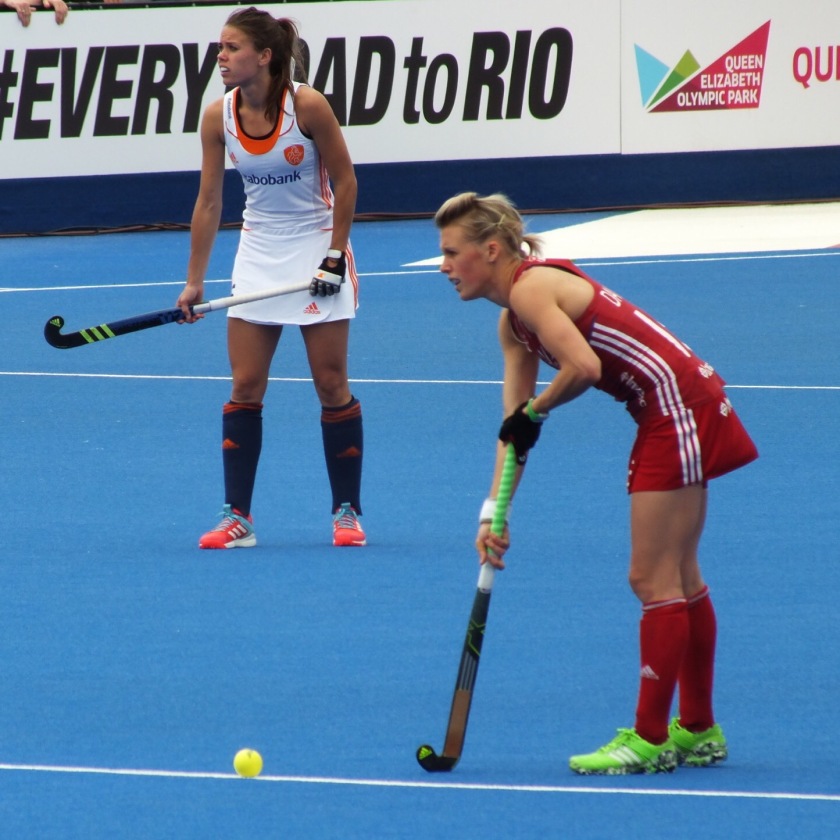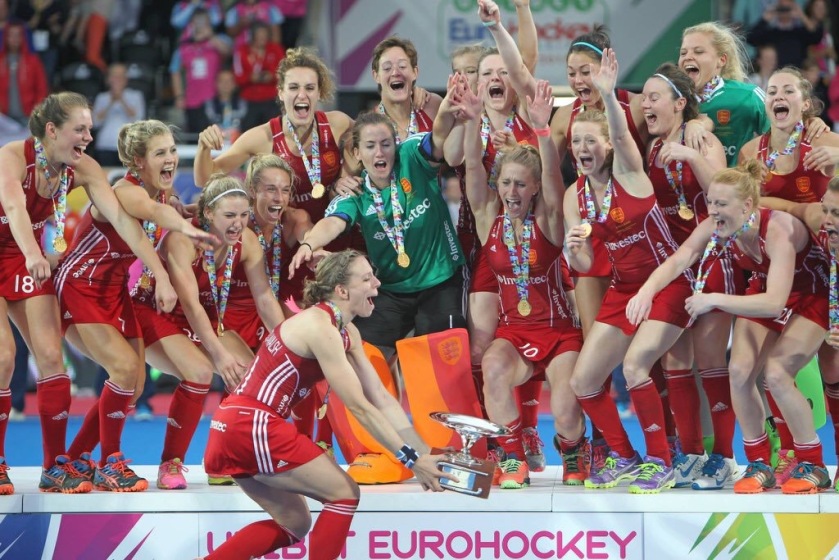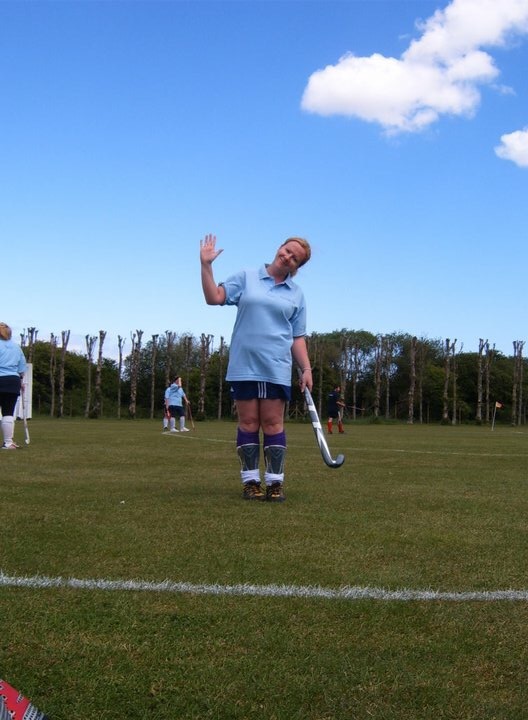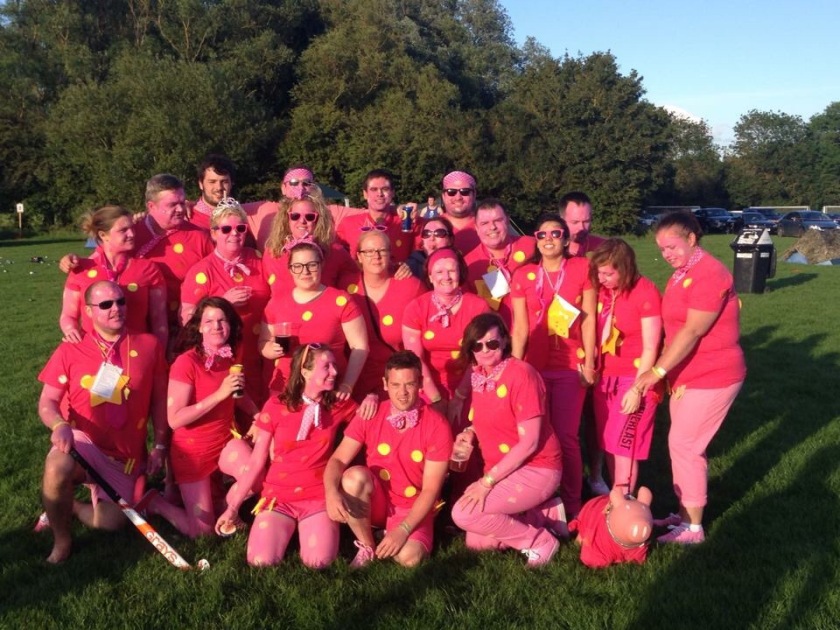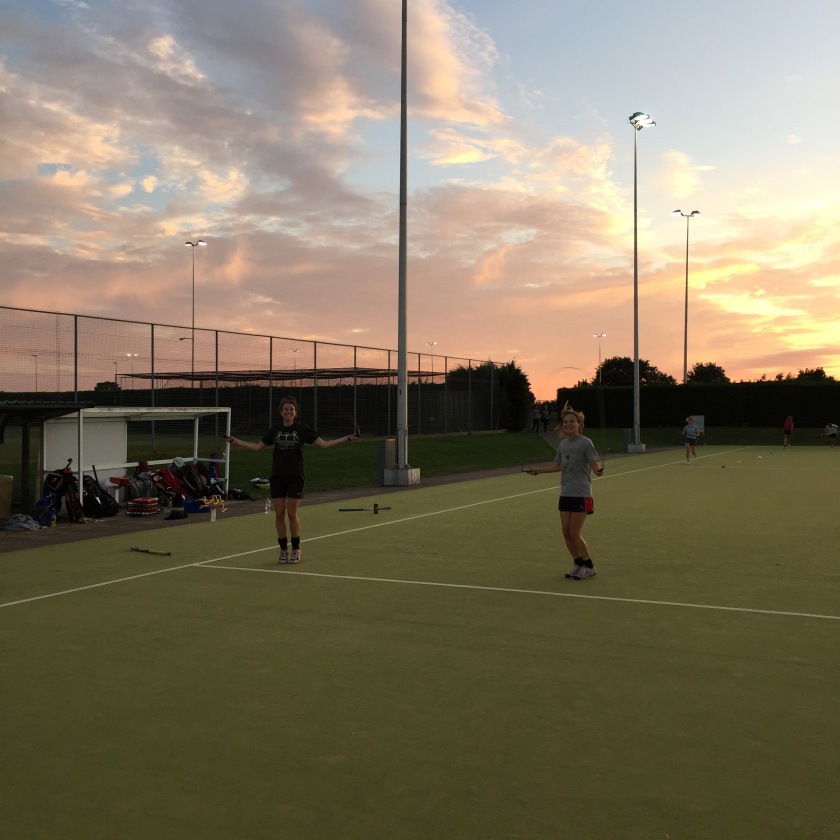Welcome to the ‘Friends Friday’ blog, where I hope to cover some player/coaching profiles. Giving you an idea of various roles within a club level environment. The first profile I wanted to cover was the role of a captain, for the top ladies team within a club.
The honour is given to close friend and player/coaching mentor Helen “Clarkey” Clarke of St Ives Hockey Club (no, not Cornwall!) in Cambridgeshire.
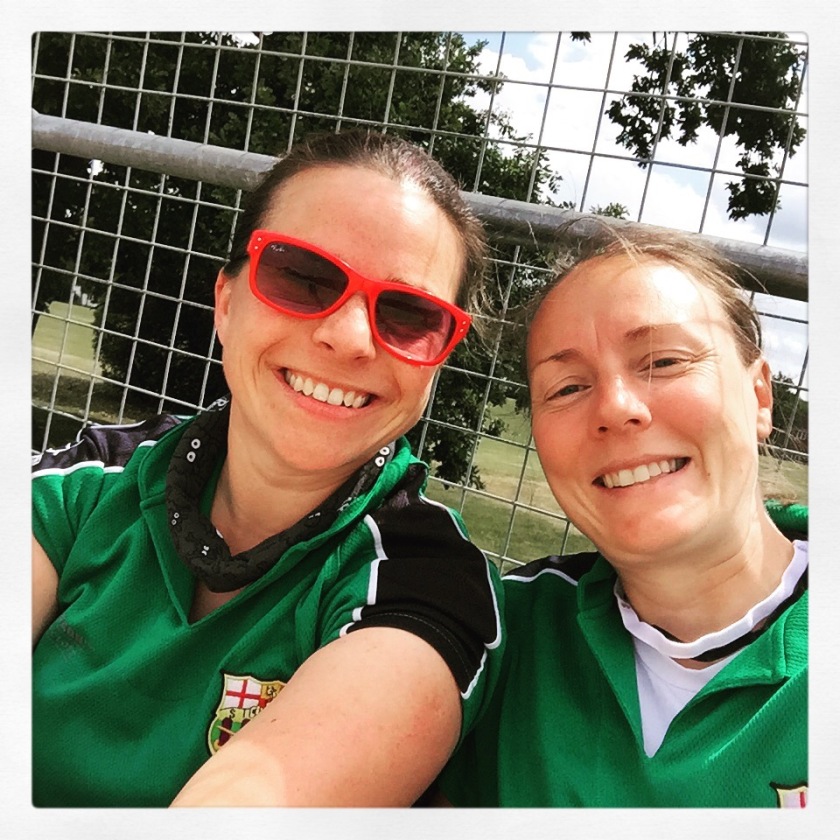 Who are you?
Who are you?
Clarkey. I will be taking on the role of Ladies 1st team captain this season at St Ives Hockey Club.
What job do you do?
I’m a regional tennis participation manager in the East for the Lawn Tennis Association. Which basically means I work with local priority areas to increase participation in tennis, focusing on community environments, e.g. parks rather than clubs.
What is your hockey experience?
Player : I’ve played since I was at school, so for about 15 years at St Ives Hockey club. I arrived at the club as a junior, but started playing more frequently as a senior. My dad played at the club so it was a natural progression to join St Ives. I had a game in the threes, aged 14, then I played in the twos for the rest of the season. I then kept the bench warm for the ones until finally making the starting lineup on the pitch aged 15. I have been playing for the ones ever since.
Coach : My boss at the time, at Living Sport (Living Sport), suggested I do my level 1 in hockey coaching. As a coach himself, he recognized something in my commitment to the club and promoted the opportunity. Professionally I was working with a lot of sports coaches and thought it would be a good idea to know what it felt like to coach. I did my level 1 in 2009 and carried on to do my level 2 in 2011.
Who have you coached?
Since taking up coaching I have coached at St Ives Hockey all age ranges from U7 to the senior men, including the men’s first team. I have coached in primary schools, delivering Quick-sticks and in the single system at JDC and JAC with Cambridgeshire, U13 – U16 girls.
What stick do you use and why?
I am currently playing with a MAZON, but I’ve never bought a stick, sticks don’t really matter to me. My dad works for a sports equipment distributor so I have always had the sticks he has given me. I don’t mind what stick I play with, you just play, don’t you!
What shoes do you wear and why?
I don’t get on with Adidas, so probably Asics, are my shoe of choice, generally whichever the pretty ones are on offer!
What’s your top skill?
Natural goal scorer – that sounds arrogant, I don’t mean it to be, just a lot of girls are not natural goal scorers. Having coached many young girls, a natural eye for goal is not very common.
And how do you do it?
A lot of practice. I am a confidence player, so when I’m scoring I feel like I’ve had a good game. If I don’t score I feel responsible, my job is to score, especially if we’ve lost.

Why did you take the role of Captain?
I’ve been avoiding it for years, then we got relegated last season, which wasn’t a real surprise. I recognised within the club, the reason that we got relegated wasn’t purely down to the first team, but more a build up of the wrong sort of philosophy in the club. I want to use my tenure to change the current philosophy and ensure there is a real opportunity for young players and old players alike to develop individually and progress through the club, providing a much longer term future for all of the teams competing in leagues. I want people to know they are not playing for the first team, they are playing for St Ives Hockey Club.
What does the role of Ladies 1st team captain entail?
Management. A group of girls are notoriously difficult to maintain. You can’t please everyone, all of the time. I can only try to be open, honest and fair and do the right thing for the club.
There should be an element of tactical understanding and implementing tactics. I think that’s vitally important, so much so, that I am mentoring a manager (retired player and all round hockey guru) who will attend games and training to take pressure of me whilst I am playing, to give me another set of eyes and support me so I can continue my role on the pitch as a player.
I have chosen to delegate my administration within the team to enable them to feel part of the team. This is part of the long term plan to develop the next captain in line, to give players an understanding of what it takes to be a captain.
What is your aim this season?
Promotion this year or next. I am not going to sacrifice the long term philosophy in the club to push for promotion this year if its not an option. Although it would be great to bounce straight back up into the league we have spent 11 seasons in.
I am planning on bringing players into the team that are not necessarily the best players in the club, but players that have the right attitude, work ethic and on pitch contribution.
Why do you think this is a good approach?
To reward effort, encourage other players to give 100% commitment, both in training and during games, and to plan for the future.
Will you set individual objectives for individual players as well as team objectives?
Yes, we have a level 3 coach that we’ve engaged, who coached us last year. This is a long term vision to support our long-term club development. I hope to work with him to identify areas of weakness within individuals that we can develop, support and build. This is particularly important as some of the players that will be playing in the first team won’t have experienced that pace, aggression and intensity.
What league are you playing in next season?
East region, division 2NW
What do you think people expect from a captain?
Commitment, honesty, motivation, role model, lead by example. I don’t think you have to be the best hockey player in the team to be captain.

What qualities do you have as a leader?
I think it helps that I know and understand hockey and have played at a reasonable standard. I have the respect of the players that I have worked hard to earn over the last 11 seasons and the wider club, due to the work I am prepared to put into running the club. I have been very focused on direction and goal outcome for the season and have been very passionate about what I want to achieve with rebuilding the team hoping the players will follow me. I can be motivational at the right moments to ensure fire and passion passes through all players. I have the support of some of the senior members of the team who are not afraid to keep me grounded and tell it to me straight.
What do you expect from your team members?
To reciprocate what I give them, a symbiotic relationship…..
How are you preparing for the season?
Personally I have put more emphasis on my own fitness so that I can lead by example.
When is your training?
We have an hour and a half on the pitch on a Tuesday night from 8-9.30pm at the outdoor St Ives leisure centre, with a half hour whiteboard session at 7.30pm prior to pitch time. This is hockey specific, so I do expect people to look after their general fitness during the week and maintain match fitness in their own time.
How will you carry out your team selection?
The three ladies teams captains and club captain meet weekly to discuss availability of players. I will get my pick, being first team captain and it will be based on qualities such as commitment, attitude, hunger etc….
What do you think the hardest part of being a captain?
Not taking it personally. So if we get beaten, its not necessarily because I haven’t played well. There may be several contributing factors. If we lose, then I have to look at why we lost, which is different to being beaten.
And the best part?
Leading the whole team in the same direction and achieving a mutual goal.
How would you develop potential players that are striving to be in your team?
Build a channel of communication with them. Avoid the ‘clicky’ nature of teams. I would like for people to feel they are able to approach me and will try to do this by integrating myself into wider groups at training. I want to try to inspire players to want to play higher and better themselves. I am also going to set up a buddy system so more senior players take a less experienced player under their wing, to forge a relationship and bounce off each other.
There will be players in the team that you just want to push a bit harder. For all players, including players that have been playing for a long time.
Who is your hockey hero?
My dad – no one can stand on the back post like he did. He’s my inspiration to play.
Favourite GB player?
Hannah Macleod – I taught her everything she knew. (Said with a massive smile! They did go to school together!)
What are your plans for the future?
I don’t want to have to umpire! We need to recruit more umpires though.
I will get back into coaching, once my objectives as captain have been completed. I want to focus on building the club for the future. Then I’m just going to play hockey until my hip or knees give out… (Hopefully a few more years yet!!)
Do you have an inspirational quote?
“the interesting thing about coaching is trouble the comfortable and comfort the troubled.” Ric Charlesworth.
St Ives HC is located at the One Leisure St Ives Outdoor Centre, California Road, St Ives, PE27 6SJ. They currently have five men’s teams and three ladies teams, mixed teams and junior hockey, providing opportunities for all members of the family to play hockey. If you fancy picking a stick up and joining in, log onto the website to see times and dates.(St Ives HC website)
